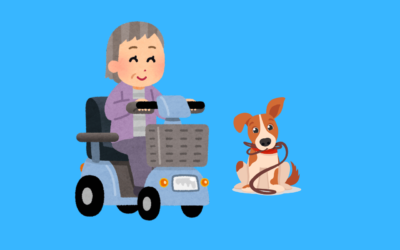Mobility Blog
The ReviewMobility Blog
At Review Mobility, you will find over 200+ and growing to help and learn all about mobility.
Also check out our other site: Look Into for more great content.
Start by reading our most popular blogs below.
Top Mobility Aids for Car: Enhance Your Driving Comfort and Safety
If you or a loved one has difficulty getting in and out of a...
Top Glass Magnifier Choices for Everyday Use
Looking for the best glass magnifier? This guide reviews top picks,...
Top Rollators with Seats for 2025
Finding the perfect rollator with a seat can make a world of...
Top Motorised Wheelchairs for the Elderly in 2025
Finding the right mobility solution can transform the daily lives of...
Top Mobility Walkers with Seats for 2025 – Which One Suits You Best?
Maintaining mobility and independence is essential for those facing...
Top Folding Wheelchairs of 2025
Finding the perfect folding wheelchair can transform daily life,...
Best Dog Walking Attachments For Mobility Scooters
Key Takeaways For Dog Walking Attachments For Mobility Scooters...
Tri Walkers UK: A Buying Guide
Key Takeaways For Tri Walker Tri-walkers, or rollators, are...
Best Class 3 Mobility Scooter UK
Key Takeaways For Best Class 3 Mobility Scooters Powerchairs provide...
Best Gel Seat Cushion: Top Pressure Cushions
Key Takeaways For Best Pressure Cushions Pressure Redistribution:...
Best Mobility Scooter for Tall Person
Key Takeaways For Best Mobility Scooter For a Tall Person Non-Slip...
Discover the Best Compact Wheelchairs of 2025
Finding the perfect compact wheelchair can transform daily mobility,...
Best Mobility Scooter for Steep Hills in the UK
Key Takeaways For Best Mobility Scooter for Steep Hills Optimal...
Best Electric Adjustable Beds UK In 2025
Key Takeaways For Best Adjustable Beds Revolutionary Designs:...
Best Knee Scooters – Best Sellers
Key Takeaways For Best Knee Scooters Best knee scooters offer...
Can I Get a Personal Alarm for Free? Everything You Need to Know
Key Takeaways: Can I Get a Free Personal Alarm? Limited Free...
Best Non-Slip Baby Bath Mat: Buying Guide
Key Takeaways For Non-Slip Bath Mat Secure Your Shower:* Non-slip...
Best Compression Boots – Best Sellers
Key Takeaways For Best Compression Boots The best compression boots...
Popular Categories
View our most popular categories below or click to view all categories.


















